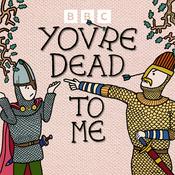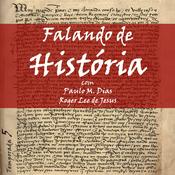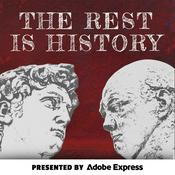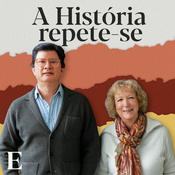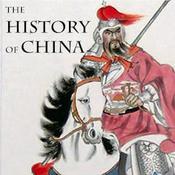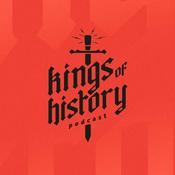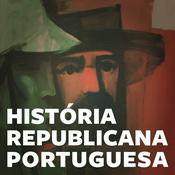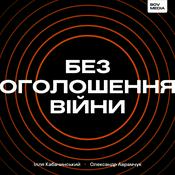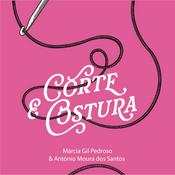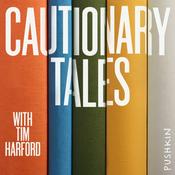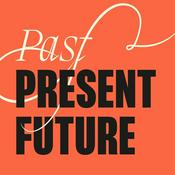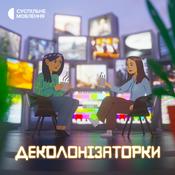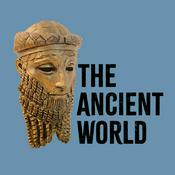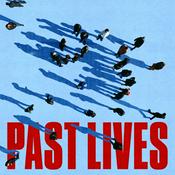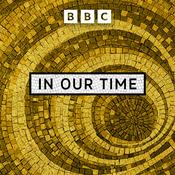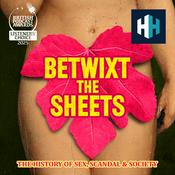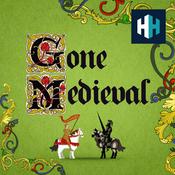199 episódios

Barbour's 'Brus'
17/7/2025 | 49min
Melvyn Bragg and guests discuss John Barbour's epic poem The Brus, or Bruce, which he wrote c1375. The Brus is the earliest surviving poem in Older Scots and the only source of many of the stories of King Robert I of Scotland (1274-1329), popularly known as Robert the Bruce, and his victory over the English at Bannockburn in 1314. In almost 14,000 lines of rhyming couplets, Barbour distilled the aspects of the Bruce’s history most relevant for his own time under Robert II (1316-1390), the Bruce's grandson and the first of the Stewart kings, when the mood was for a new war against England after decades of military disasters. Barbour’s battle scenes are meant to stir in the name of freedom, and the effect of the whole is to assert Scotland as the rightful equal of any power in Europe.WithRhiannon Purdie Professor of English and Older Scots at the University of St AndrewsSteve Boardman Professor of Medieval Scottish History at the University of EdinburghAndMichael Brown Professor of Scottish History at the University of St AndrewsProducer: Simon TillotsonReading list:John Barbour (ed. A.A.M. Duncan), The Bruce (Canongate Classics, 2007)G.W.S. Barrow, Robert Bruce and the Community of the Realm of Scotland (Edinburgh University Press, 1988)Stephen Boardman, The Early Stewart Kings: Robert II and Robert III (Tuckwell Press, 1996)Steve Boardman and Susan Foran (eds.), Barbour's Bruce and its Cultural Contexts: Politics, Chivalry and Literature in Late Medieval Scotland (D.S. Brewer, 2015)Michael Brown, Disunited Kingdoms: Peoples and Politics in the British Isles, 1280-1460 (Routledge, 2013)Michael Brown, The Wars of Scotland, 1214-1371 (Edinburgh University Press, 2004)Thomas Owen Clancy and Murray Pittock, Ian Brown and Susan Manning (eds.), The Edinburgh History of Scottish Literature, Vol. 1: From Columba to the Union (until 1707), (Edinburgh University Press 2006)Robert Crawford, Scotland's Books: A History of Scottish Literature (Oxford: Oxford University Press, 2009)Robert DeMaria Jr., Heesok Chang and Samantha Zacher (eds.), A Companion to British Literature: Vol 1, Medieval Literature, 700-1450 (John Wiley & Sons, 2014), especially 'Before the Makars: Older Scots literature under the early Stewart Kings' by Rhiannon PurdieColm McNamee, The Wars of the Bruces: Scotland, England and Ireland 1306-1328 (Tuckwell Press, 2001)Michael Penman, Robert the Bruce, King of the Scots (Yale University Press, 2014)In Our Time is a BBC Studios Audio ProductionSpanning history, religion, culture, science and philosophy, In Our Time from BBC Radio 4 is essential listening for the intellectually curious. In each episode, host Melvyn Bragg and expert guests explore the characters, events and discoveries that have shaped our world.

The Vienna Secession
03/7/2025 | 54min
In 1897, Gustav Klimt led a group of radical artists to break free from the cultural establishment of Vienna and found a movement that became known as the Vienna Secession. In the vibrant atmosphere of coffee houses, Freudian psychoanalysis and the music of Wagner and Mahler, the Secession sought to bring together fine art and music with applied arts such as architecture and design. The movement was characterized by Klimt’s stylised paintings, richly decorated with gold leaf, and the art nouveau buildings that began to appear in the city, most notably the Secession Building, which housed influential exhibitions of avant-garde art and was a prototype of the modern art gallery. The Secessionists themselves were pioneers in their philosophy and way of life, aiming to immerse audiences in unified artistic experiences that brought together visual arts, design, and architecture. With:Mark Berry, Professor of Music and Intellectual History at Royal Holloway, University of LondonLeslie Topp, Professor Emerita in History of Architecture at Birkbeck, University of LondonAndDiane Silverthorne, art historian and 'Vienna 1900' scholarProducer: Eliane GlaserReading list:Mark Berry, Arnold Schoenberg: Critical Lives (Reaktion Books, 2018)Gemma Blackshaw, Facing the Modern: The Portrait in Vienna 1900 (National Gallery Company, 2013)Elizabeth Clegg, Art, Design and Architecture in Central Europe, 1890-1920 (Yale University Press, 2006)Richard Cockett, Vienna: How the City of Ideas Created the Modern World (Yale University Press, 2023)Stephen Downes, Gustav Mahler (Reaktion Books, 2025)Peter Gay, Freud, Jews, and Other Germans: Masters and Victims in Modernist Culture (Oxford University Press, 1979)Tag Gronberg, Vienna: City of Modernity, 1890-1914 (Peter Lang, 2007)Allan S. Janik and Hans Veigl, Wittgenstein in Vienna: A Biographical Excursion Through the City and its History (Springer/Wien, 1998)Jill Lloyd and Christian Witt-Dörring (eds.), Vienna 1900: Style and Identity (Hirmer Verlag, 2011)William J. McGrath, Dionysian Art and Populist Politics in Austria (Yale University Press, 1974)Tobias Natter and Christoph Grunenberg (eds.), Gustav Klimt: Painting, Design and Modern Life (Tate, 2008)Carl E. Schorske, Fin-de-siècle Vienna: Politics and Culture (Vintage, 1979)Elana Shapira, Style and Seduction: Jewish Patrons, Architecture and Design in Fin-de-Siècle Vienna (Brandeis University Press, 2016)Diane V Silverthorne, Dan Reynolds and Megan Brandow-Faller, Die Fläche: Design and Lettering of the Vienna Secession, 1902-1911 (Letterform Archive, 2023)Edward Timms, Karl Kraus: Apocalyptic Satirist: Culture & Catastrophe in Habsburg Vienna (Yale University Press, 1989)Leslie Topp, Architecture and Truth in Fin-de-Siècle Vienna (Cambridge University Press, 2004)Peter Vergo, Art in Vienna, 1898-1918: Klimt, Kokoschka, Schiele and Their Contemporaries (4th ed., Phaidon, 2015)Hans-Peter Wipplinger (ed.), Vienna 1900: Birth of Modernism (Walther & Franz König, 2019)Hans-Peter Wipplinger (ed.), Masterpieces from the Leopold Museum (Walther & Franz König)Stefan Zweig, The World of Yesterday: An Autobiography (University of Nebraska Press, 1964)In Our Time is a BBC Studios Audio ProductionSpanning history, religion, culture, science and philosophy, In Our Time from BBC Radio 4 is essential listening for the intellectually curious. In each episode, host Melvyn Bragg and expert guests explore the characters, events and discoveries that have shaped our world.

Molière
22/5/2025 | 51min
Melvyn Bragg and guests discuss one of the great figures in world literature. The French playwright Molière (1622-1673) began as an actor, aiming to be a tragedian, but he was stronger in comedy, touring with a troupe for 13 years until Louis XIV summoned him to audition at the Louvre and gave him his break. It was in Paris and at Versailles that Molière wrote and performed his best known plays, among them Tartuffe, Le Misanthrope and Le Malade Imaginaire, and in time he was so celebrated that French became known as The Language of Molière.With Noel Peacock Emeritus Marshall Professor in French Language and Literature at the University of GlasgowJan Clarke Professor of French at Durham UniversityAnd Joe Harris Professor of Early Modern French and Comparative Literature at Royal Holloway, University of LondonProducer: Simon TillotsonReading list:David Bradby and Andrew Calder (eds.), The Cambridge Companion to Molière (Cambridge University Press, 2006)Jan Clarke (ed.), Molière in Context (Cambridge University Press, 2022)Georges Forestier, Molière (Gallimard, 2018)Michael Hawcroft, Molière: Reasoning with Fools (Oxford University Press, 2007)John D. Lyons, Women and Irony in Molière’s Comedies of Mariage (Oxford University Press, 2023)Robert McBride and Noel Peacock (eds.), Le Nouveau Moliériste (11 vols., University of Glasgow Presw, 1994- )Larry F. Norman, The Public Mirror: Molière and the Social Commerce of Depiction (University of Chicago Press, 1999)Noel Peacock, Molière sous les feux de la rampe (Hermann, 2012)Julia Prest, Controversy in French Drama: Molière’s Tartuffe and the Struggle for Influence (Palgrave Macmillan, 2014)Virginia Scott, Molière: A Theatrical Life (Cambridge University Press, 2020)In Our Time is a BBC Studios Audio Production

Thomas Middleton
17/4/2025 | 56min
Melvyn Bragg and guests discuss one of the most energetic, varied and innovative playwrights of his time. Thomas Middleton (1580-1627) worked across the London stages both alone and with others from Dekker and Rowley to Shakespeare and more. Middleton’s range included raucous city comedies such as A Chaste Maid in Cheapside and chilling revenge tragedies like The Changeling and The Revenger’s Tragedy, some with the main adult companies and some with child actors playing the scheming adults. Middleton seemed to be everywhere on the Jacobean stage, mixing warmth and cruelty amid laughter and horror, and even Macbeth’s witches may be substantially his work.WithEmma Smith Professor of Shakespeare Studies at Hertford College, University of OxfordLucy Munro Professor of Shakespeare and Early Modern Literature at Kings College LondonAnd Michelle O’Callaghan Professor of Early Modern Literature at the University of ReadingProducer: Simon TillotsonReading list:Swapan Chakravorty, Society and Politics in the Plays of Thomas Middleton (Clarendon Press, 1996)Suzanne Gossett (ed.), Thomas Middleton in Context (Cambridge University Press, 2011)R.V. Holdsworth (ed.), Three Jacobean Revenge Tragedies: A Selection of Critical Essays (Macmillan, 1990), especially ‘Calvinist Psychology in Middleton’s Tragedies’ by John StachniewskiMark Hutchings and A. A. Bromham, Middleton and His Collaborators (Northcote House, 2007)Gordon McMullan and Kelly Stage (eds.), The Changeling: The State of Play (The Arden Shakespeare, 2022)Lucy Munro, Shakespeare in the Theatre: The King's Men (The Arden Shakespeare, 2020)David Nicol, Middleton & Rowley: Forms of Collaboration in the Jacobean Playhouse (University of Toronto Press, 2012)Michelle O’Callaghan, Thomas Middleton: Renaissance Dramatist (Edinburgh University Press, 2009)Gary Taylor and Trish Thomas Henley (eds.), The Oxford Handbook of Thomas Middleton (Oxford University Press, 2012)In Our Time is a BBC Studios Audio Production

Oliver Goldsmith
20/3/2025 | 54min
Melvyn Bragg and guests discuss the renowned and versatile Irish writer Oliver Goldsmith (1728 - 1774). There is a memorial to him in Westminster Abbey’s Poet’s Corner written by Dr Johnson, celebrating Goldsmith's life as a poet, natural philosopher and historian. To this could be added ‘playwright’ and ‘novelist’ and ‘science writer’ and ‘pamphleteer’ and much besides, as Goldsmith explored so many different outlets for his talents. While he began on Grub Street in London, the centre for jobbing writers scrambling for paid work, he became a great populariser and compiler of new ideas and knowledge and achieved notable successes with poems such as The Deserted Village, his play She Stoops to Conquer and his short novel The Vicar of Wakefield. WithDavid O’Shaughnessy Professor of Eighteenth-Century Studies at the University of GalwayJudith Hawley Professor of Eighteenth-Century Literature at Royal Holloway, University of LondonAnd Michael Griffin Professor of English at the University of LimerickProducer: Simon TillotsonReading list:Norma Clarke, Brothers of the Quill: Oliver Goldsmith in Grub Street (Harvard University Press, 2016)Leo Damrosch, The Club: Johnson, Boswell, and the Friends Who Shaped an Age (Yale University Press, 2019)Oliver Goldsmith (ed. Aileen Douglas and Ian Campbell Ross), The Vicar of Wakefield: A Tale, Supposed to Be Written by Himself (first published 1766; Cambridge University Press, 2024)Oliver Goldsmith (ed. Arthur Friedman), The Vicar of Wakefield (first published 1766; Oxford University Press, 2008)Oliver Goldsmith (ed. Arthur Friedman), The Collected Works of Oliver Goldsmith, 5 vols (Clarendon Press, 1966) Oliver Goldsmith (ed. Robert L. Mack), Oliver Goldsmith: Everyman’s Poetry, No. 30 (Phoenix, 1997)Oliver Goldsmith (ed. James Ogden), She Stoops to Conquer (first performed 1773; Methuen Drama, 2003)Oliver Goldsmith (ed. James Watt), The Citizen of the World (first published 1762; Cambridge University Press, 2024)Oliver Goldsmith (ed. Nigel Wood), She Stoops to Conquer and Other Comedies (first performed 1773; Oxford University Press, 2007)Michael Griffin and David O’Shaughnessy (eds.), Oliver Goldsmith in Context (Cambridge University Press, 2024)Michael Griffin and David O’Shaughnessy (eds.), The Letters of Oliver Goldsmith (Cambridge University Press, 2018)Roger Lonsdale (ed.), The Poems of Gray, Collins and Goldsmith (Longmans, 1969)In Our Time is a BBC Studios Audio production
Mais podcasts de História
Podcasts em tendência em História
Sobre In Our Time: Culture
Ouve In Our Time: Culture, You're Dead to Me e muitos outros podcasts de todo o mundo com a aplicação radio.pt
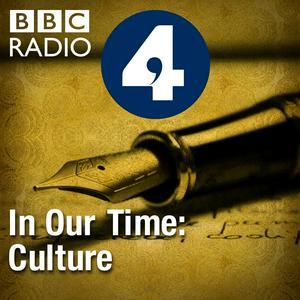
Obtenha a aplicação gratuita radio.pt
- Guardar rádios e podcasts favoritos
- Transmissão via Wi-Fi ou Bluetooth
- Carplay & Android Audo compatìvel
- E ainda mais funções
Obtenha a aplicação gratuita radio.pt
- Guardar rádios e podcasts favoritos
- Transmissão via Wi-Fi ou Bluetooth
- Carplay & Android Audo compatìvel
- E ainda mais funções


In Our Time: Culture
descarregue a aplicação,
ouça.
